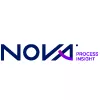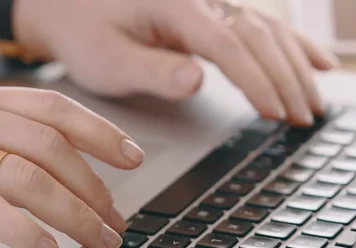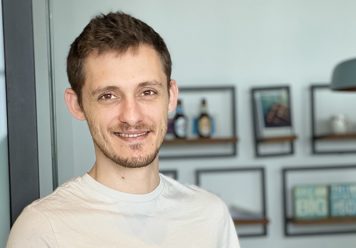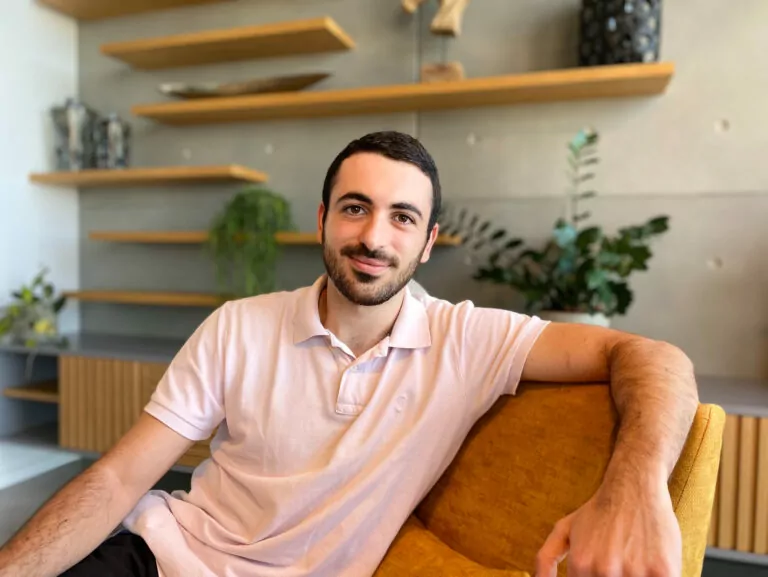Eli, since you’ve joined the Nova team, we’ve learned you’re incredibly passionate about physics. Tell us more about where that passion comes from.
I have always been fascinated by natural phenomena in the world around us, especially visual ones. I began my physics studies very informally at the age of 15, and the continuance of my education wasn’t very traditional, either. I think this is important for people to know, especially for young students who begin their academic degrees during high school (Thousands of high school students are already studying for an undergraduate degree every year). I started studying physics on my own in the tenth grade, and I immediately fell in love with it.
Wow! That’s impressive to tackle learning physics on your own at such a young age. Can you share more about your journey?
Sure. My enthusiasm for physics began after taking the Physics Olympiad test at the beginning of tenth grade. If you’ve never heard of it, I recommend looking into the International Physics Olympiad – IPhO – tests, which are super interesting. Their goal is to model natural phenomena in the various fields of physics. The questions are complex, and after a very intense year of daily studying, the eight students who make it through the strict training and achieve the highest scores are chosen for the international competition.
After a full year of self-studying, which included the major classifications of mechanics, electricity, thermodynamics, and mathematics for physicists, I ascended to an advanced stage of the Physics Olympiad tests in 2017 and began studying and training for the global competition. The level was much higher than the first-degree courses in physics. It included topics such as mechanics, electricity, electrical network, waves and optics, thermodynamics, hydrodynamics, special relativity, a little bit of statistical mechanics and Light – matter interaction, quantum mechanics, and lab work.
I’m guessing that you made the competitive team.
Yes, fortunately! When I finished training, I represented the state of Israel at the competition held in Russia in 2017. I reached 100th place in the overall competition and 6th place in Israel. We were asked about incredibly fascinating physical phenomena such as gravitational waves created by two black holes surrounding one another, superfluid vortices, and even garbage collection in space with analytical mechanics tools.
The main insight I took from the competition and can pass on to other people is to never engage in only one specific subject. The beauty of physics is that it requires knowing and combining various fields. A great example of subject combinations would be the superfluid vortices question, where the method of image charges was likened to near-wall vortices.
Great advice. Tell us a bit about your academic journey and how physics was part of that.
Shortly before the competition ended, I started my degree at Tel Aviv University. Studying for the degree was an obvious and direct continuation of the program. As soon as I began my first semester, I started working with Dr. Moshe Ben Shalom as a research assistant. Our work centered around the experimental study of two-dimensional graphene layers and various multilayered crystals (strain-wise). It was my first encounter with the experimental research world in a real lab instead of a competition. Working in a clean room is nothing like working in a lab for a test or with AFM and other microscopic methods.
An interesting thing to mention is that working on first-degree projects in research labs is a great experience that can help you understand what subjects you’re passionate about, which ways of work you connect to, whether you like the academic world or not, and more.
So, your first experience with physics in an academic setting sounds like a positive one. How did you continue to build on these interests throughout your studies?
I liked Moshe’s research and found it interesting. However, I had to leave since I was recruited to the IDF. As soon as that happened, I joined a technological unit, engaging in waves, optics, and algorithmics. We dealt with the most fascinating and essential Ground Forces projects leading the development field, and we even won the Israeli Defense prize. We worked with various industries, and the physical research was very interesting.
I continued taking classes while serving in the army. It wasn’t as fun as before, as I preferred using my time to study more physics and even teach as a private tutor and a teaching assistant. As a funny aside, once a week I used to drive to Tel Aviv University after a full day of work at the military base to teach electrical engineering students the classical mechanics course. This continued for three years. I also trained the Israeli group competing in the physics Olympic games, and I escorted our team in 2020, 2021, and 2022.
You were busy!
For sure! As I finished my military service, I continued taking university classes and teaching. I also participated in a summer project with Dr. Yoav Lahini. We studied the observation and characterization of long-lasting memory effects in mesoscopic systems, the development of an ultra-fast label free technique for tracking single viruses, and observation of topological states in disordered and quasi-periodic systems. When I finished, I started working with Dr. Naomi Oppenheimer in the hydrodynamics of high viscosities fields, searching for the solution for the first Stokes problem in its various boundaries. After experiencing and exploring multiple research fields from several directions, I realized that I find the subjects of solid-state and waves most interesting. I thus read a few optics and nonlinear optics books and watched some master-degree lessons in these subjects when I then learned about Nova.
Tell us a little bit about how you came to Nova.
While I was studying at Tel Aviv University, I received a LinkedIn message from Gilad Barak from Nova. So this is a reminder that if you’re still not on LinkedIn, you need to do it! I applied and had a job interview and fell in love with the subjects Nova’s development team is researching. I’ve now been here for about a year and a half working with the CTO physical theoretic and algorithmic group.
Can you tell us a little more about what compelled you to join the Nova team?
Sure. There are a lot of reasons, and I will tell about a small part of them. One reason I decided to work at Nova over the other industrial companies is because of the people. I liked the person who interviewed me–they’re now my boss.
Another important reason is the topics we explore here and the research Nova produces. The research my colleagues are conducting here is exciting. The physical topics of engagement we explore here are my favorite physics subjects.
We love to hear that you’ve found a career that matches your passions here at Nova. Tell us a little bit more about it.
NOVA’s CTO group conducts physical scientific studies, which are the state of the art of solid-state, optics, and nonlinear optics science. The CTO group is comprised of people holding doctorates in physics from various specialties, which enriches everyone’s knowledge. I generally think that diversity and knowledge nonuniformity may lead to discoveries and significant breakthroughs. Some examples of our team’s diverse expertise include solid-state, astrophysics, string theory, high energies, nano, and the obvious ones like optics and nonlinear optics. This diversity makes the work experience richer and more interesting; otherwise, everybody would be learning and doing the same thing.
Working in that group also resembles the academy, where there’s a purely physical problem to solve. And the process of reaching a solution might require reading scientific papers, building optic and electrooptic setups, conducting multidisciplinary research, building simulations and physical models, noise calculations, meetings and discussions with other researchers, and more. Conversations in the office corridor are always cool, and the various topics discussed always teach you a lot, in addition to the formal engagement itself.
Speaking of the academy, where do you see yourself working in the future: the academy or industry?
I still haven’t made up my mind about that. Regarding my career path, I still have a lot of time to decide. But I do believe that everyone will find their right place if they choose to do what they love the most.
It sounds like you enjoy your work, and it keeps you busy. What else do you have going on outside the office?
Apart from working, I’m also about to start studying for a master’s degree in the field of nonlinear optics with Prof. Haim Sochovsky serving as a mentor.
Do you have any parting words to share with readers?
We at NOVA are recruiting new employees for various jobs! So if you love physics, you’re more than welcome to write to me privately!



